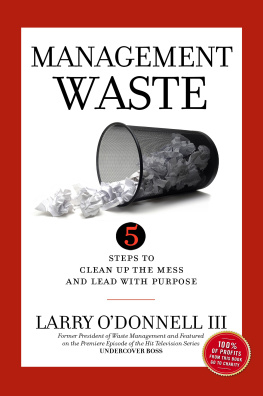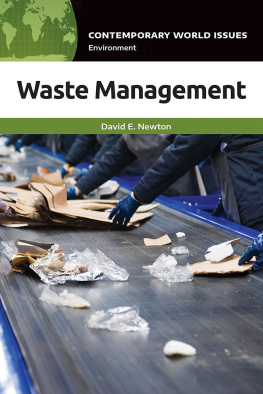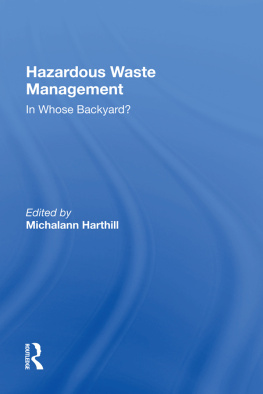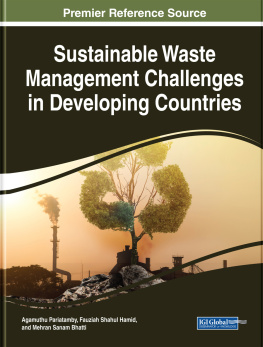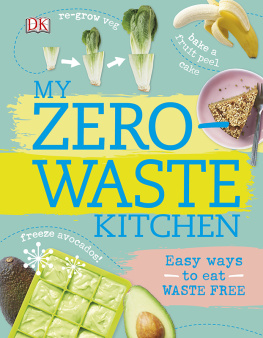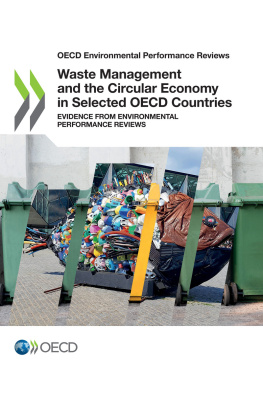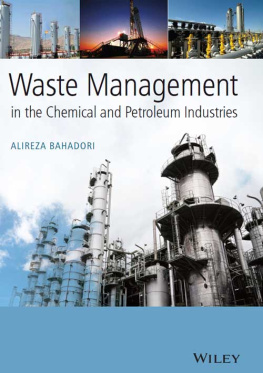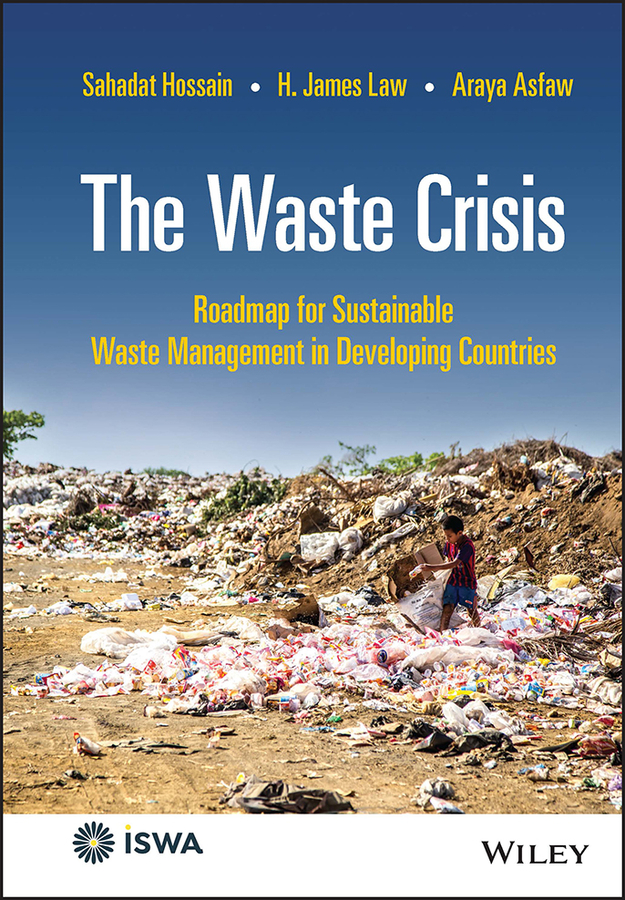Sahadat Hossain - The Waste Crisis: Roadmap for Sustainable Waste Management in Developing Countries
Here you can read online Sahadat Hossain - The Waste Crisis: Roadmap for Sustainable Waste Management in Developing Countries full text of the book (entire story) in english for free. Download pdf and epub, get meaning, cover and reviews about this ebook. City: Hoboken, year: 2022, publisher: Wiley-ISWA, genre: Science / Politics. Description of the work, (preface) as well as reviews are available. Best literature library LitArk.com created for fans of good reading and offers a wide selection of genres:
Romance novel
Science fiction
Adventure
Detective
Science
History
Home and family
Prose
Art
Politics
Computer
Non-fiction
Religion
Business
Children
Humor
Choose a favorite category and find really read worthwhile books. Enjoy immersion in the world of imagination, feel the emotions of the characters or learn something new for yourself, make an fascinating discovery.

- Book:The Waste Crisis: Roadmap for Sustainable Waste Management in Developing Countries
- Author:
- Publisher:Wiley-ISWA
- Genre:
- Year:2022
- City:Hoboken
- Rating:3 / 5
- Favourites:Add to favourites
- Your mark:
The Waste Crisis: Roadmap for Sustainable Waste Management in Developing Countries: summary, description and annotation
We offer to read an annotation, description, summary or preface (depends on what the author of the book "The Waste Crisis: Roadmap for Sustainable Waste Management in Developing Countries" wrote himself). If you haven't found the necessary information about the book — write in the comments, we will try to find it.
Explore modern solutions to the most critical issues in waste management policy and design
In The Waste Crisis: Roadmap for Sustainable Waste Management in Developing Countries, an accomplished team of sustainability researchers deliver a concise insight of modern waste management practices that acts as a handbook for waste management professionals. Along with flow charts and example problems, the authors offer readers the information necessary to support decision making based on country, city size, population, waste generation volume, type, geographical location, and more.
The book begins with an overview of current waste management practices, including waste generation, collection, processing, composting, recycling, and disposal. It moves on to a series of case studies from over ten countries and presentations of sustainable waste management strategies. The Waste Crisis: Roadmap for Sustainable Waste Management in Developing Countries concludes with a series of practical and effective final recommendations for future best practices. It also includes:
- Practical discussions of material flow, cost-effective material recovery, anaerobic digestion, composting, recycling, disposal, training, and human capacity building
- Comprehensive explorations of unique and robust decision-making strategies for designers, policy makers, and regulators
- In-depth treatments of ready-to-implement waste management systems perfect for systems designers
The Waste Crisis: Roadmap for Sustainable Waste Management in Developing Countries is an indispensable resource for waste, recycling, and resource management professionals. It???s also perfect for waste management system designers and decision makers seeking a one-stop guide to issues of sustainability in the developing world.
Sahadat Hossain: author's other books
Who wrote The Waste Crisis: Roadmap for Sustainable Waste Management in Developing Countries? Find out the surname, the name of the author of the book and a list of all author's works by series.

